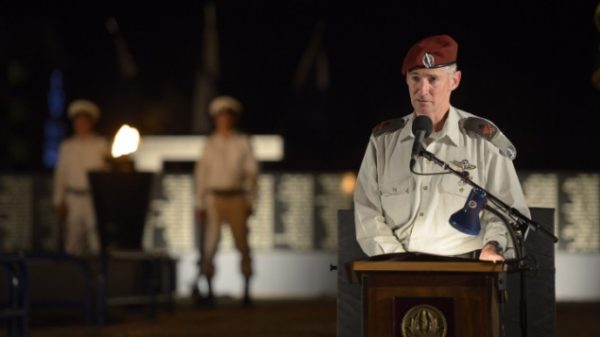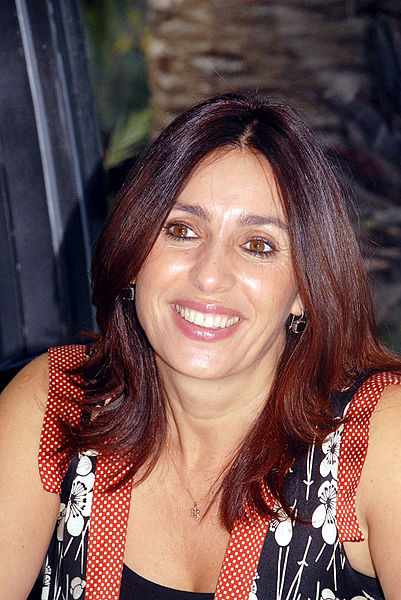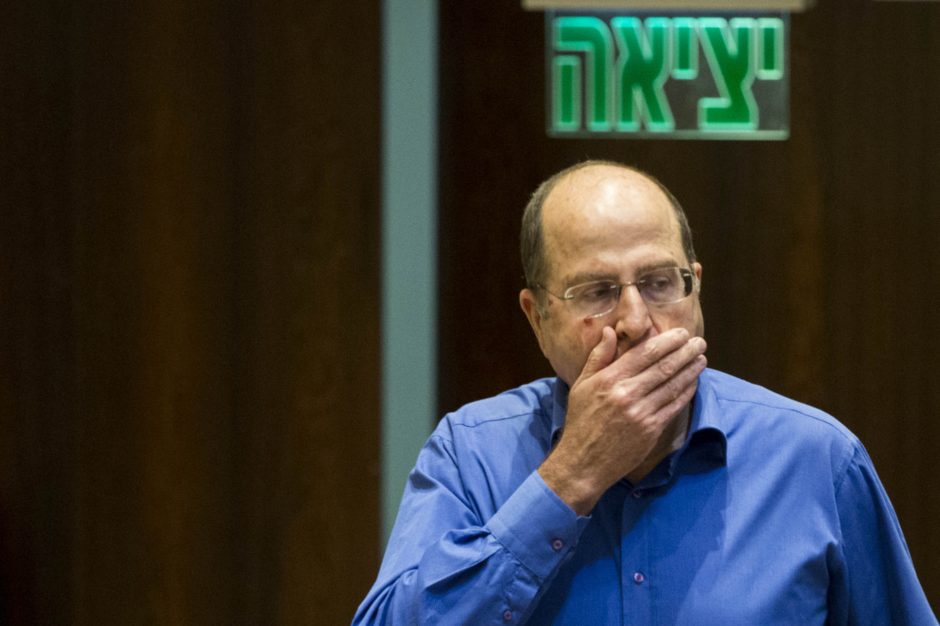Shortly after Prime Minister Benjamin Netanyahu cavalierly relieved him of his duties as minister of defence last week, Moshe Yaalon took to the podium to deliver a remarkable speech peppered with ominous references to the growth of extremism in Israel.
Yaalon’s comments should be regarded by Israelis as a wakeup, reinforcing widespread fears that Israel is heading in the wrong direction.

Israel is an open and democratic country where dissent is the norm, but as Yaalon correctly observed at a press conference in Tel Aviv on May 20, dark forces “threaten (Israel’s) fortitude” and have already trickled into the Israel Defence Force.
Yaalon’s observations are hardly original, having been previously voiced by Israeli commentators, particularly those on the left of the political spectrum. But when a person like Yaalon — a member in good standing of the ruling Likud Party and the former chief of staff of the armed forces — takes the trouble to unburden himself of such thoughts, it’s evident that something is awry.
Yaalon is a person who speaks his mind. Prior to expressing these views, he adopted a principled position on two current issues.
Much to the indignation of the right-wing camp, Yaalon said that Elor Azaria, an Israeli soldier, had breached military protocol by fatally shooting Abdel Fattah el-Sharif, a wounded and disarmed Palestinian terrorist, in Hebron on March 24. Azaria opened fire on Sharif after he had participated in the stabbing of an Israeli soldier who happened to be his friend. Azaria is now on trial for manslaughter.

To the outrage of some Israelis, Yaalon supported the right of the deputy chief of staff, General Yair Golan, to comment on the state of contemporary Israeli society. On Holocaust Remembrance Day, Golan claimed that “horrifying processes” that had occurred in Europe in the 1930s were now unfolding in Israel. He talked about “the buds off intolerance, the buds of violence” and “the buds of self-destruction” present in Israel today.
To no one’s surprise, Netanyahu did not appreciate Yaalon’s comments. Nor was he appreciative of Yaalon’s subsequent remarks on extremism in the country.
Yaalon noted that Israeli society in general is a “healthy” one, with the majority of Israelis being in favor of a “tolerant and accepting” democratic/liberal state. “But to my great regret, extremist and dangerous forces have taken over Israel and the Likud movement and are destabilizing our home and threatening to harm its inhabitants,” he warned.
“I have fought with all my strength against radicalization, violence and racism in Israeli society, which threatens its resilience,” he added.
Yaalon also expressed apprehension over “attempts to harm the Supreme Court” and thereby cause “grave damage to the rule of law” in Israel.
Such trends, he said, inspire concerns over Israel’s future as a democratic state.
He has a point, of course.
Israel has been drifting to the right since the 1967 Six Day War and particularly since Netanyahu’s accession to power. Alongside this disconcerting development, Israel’s national-religious camp has grown increasingly assertive and extreme. Lest we forget, Yigal Amir, a product of this movement, was the assassin of Yitzhak Rabin.
As countless observers have noted with dismay, Israel’s occupation of the West Bank has coarsened Israeli society and isolated Israel abroad. The nearly 50-year occupation has emboldened a dangerous minority of Jewish settlers and their supporters to resort to lawlessness. They’ve uprooted Palestinian olive trees, defaced and damaged mosques and churches and rushed into confrontations with the Palestinians, the Israeli army and the police.
Closer to home, nearly half of Israelis believe that Jews are entitled to more rights than Arab citizens, and a disturbing proportion of Israeli Jews are of the opinion that Arabs should be encouraged to emigrate.
An attempt by the current Israeli government to legally define Israel as a Jewish state rather than a state of all its citizens — Jews, Muslims and Christians — is an unsettling sign of the times as well.
In the Knesset, Justice Minister Ayelet Shaked raised eyebrows by introducing legislation to curb the activities of human rights organizations and NGOs. And a bill to restrict the authority and power of the Supreme Court is a tactic designed to turn Israel into a state that brooks little or no dissent.

Initiatives by Culture Minister Miri Regev to squelch artistic freedom in the name of nationalism is wrong as well. And the campaign by Im Tirtzu to shut down critical voices in Israel is just as retrogressive.
Israel will not survive as a real democratic state unless its citizens are free to express themselves and organized reactionary forces are kept tightly in check. In essence, this was the message, the tough love, that Yaalon delivered to his fellow Israelis recently.
Israelis should pay heed to it.
